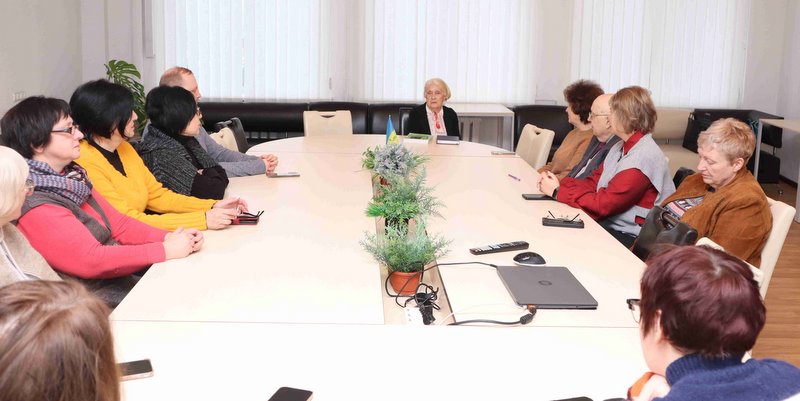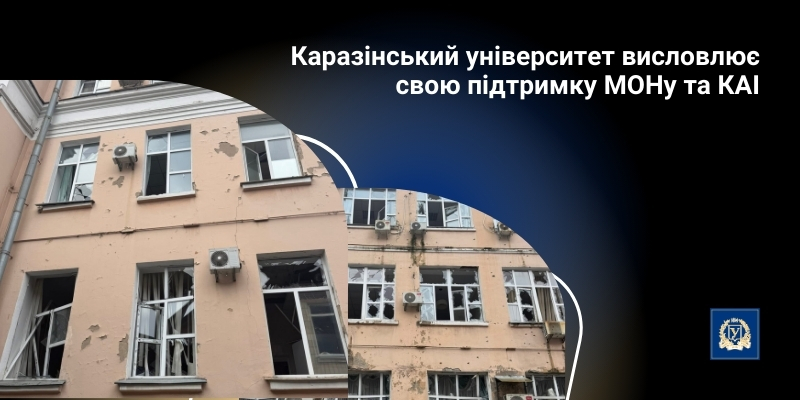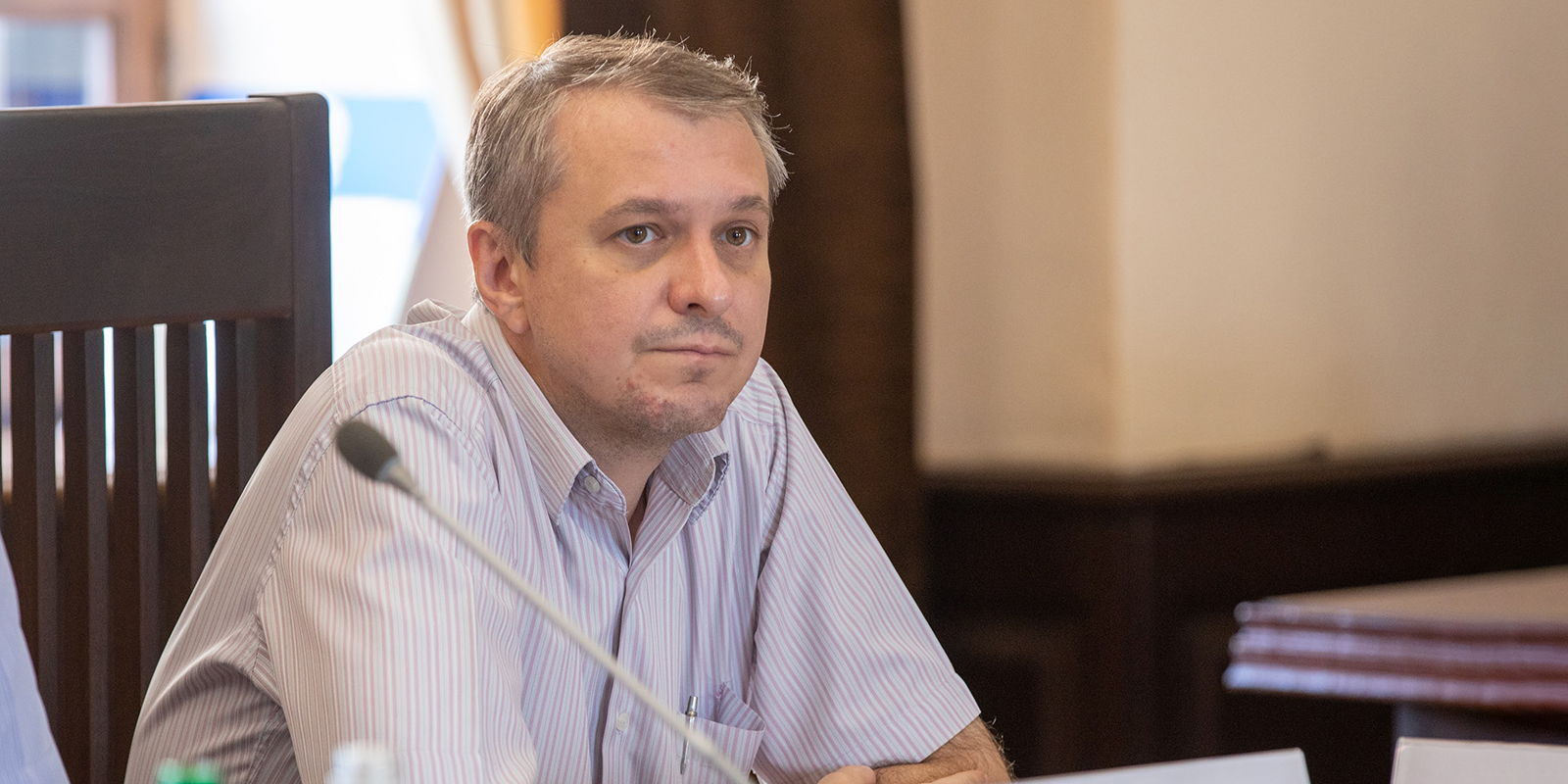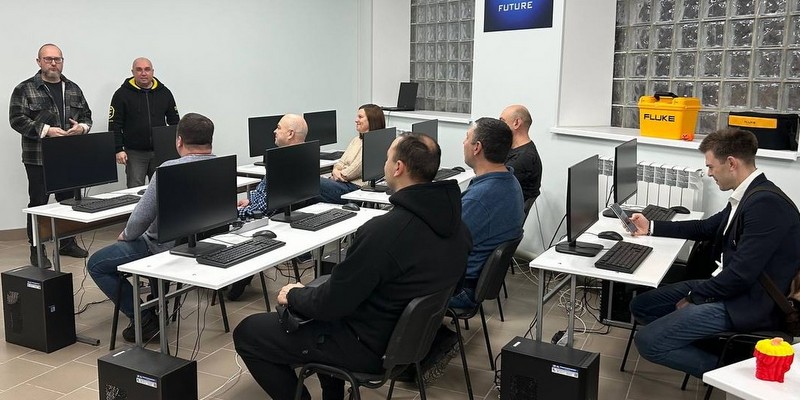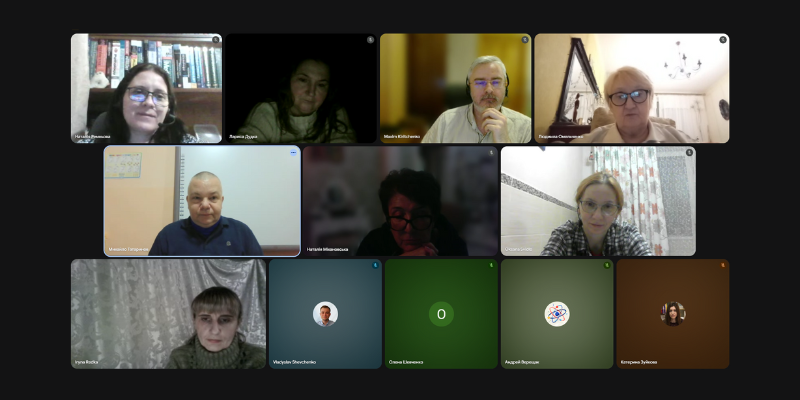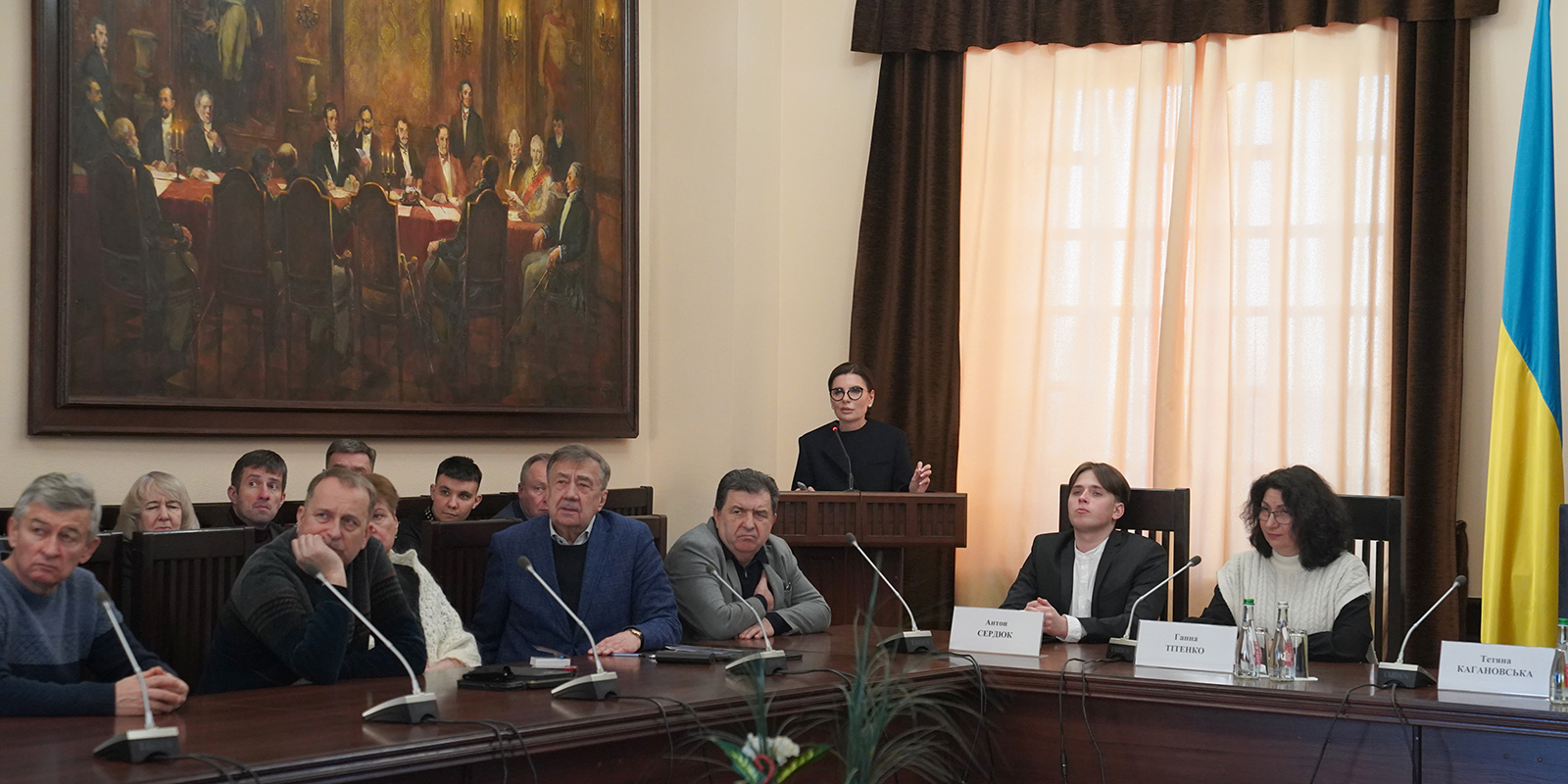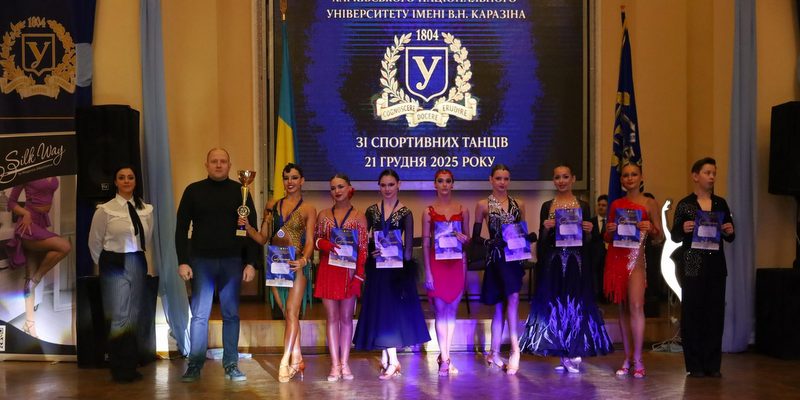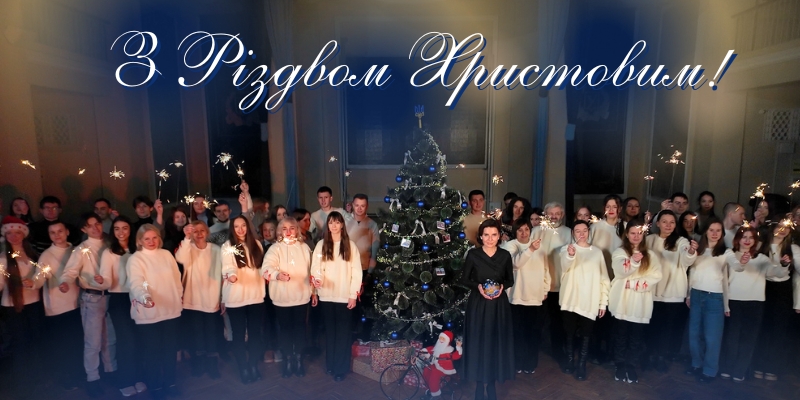Scientific Horizons of Karazin University: Interview with the Head of the Research Institute of Chemistry, Oleksandr Roshal, on the Institute’s 95th Anniversary
.jpg)
Research Institute of Chemistry was established in 1929. Initially, it wasn’t directly affiliated with our university. It was the very first research institute of chemistry in Ukraine. A few years later, it was merged with Kharkiv State University (at that time) — now Karazin University — where the institute continues to exist today.
In September, the Chemistry Research Institute celebrated its 95th anniversary. On this significant date, we should not only reflect on its history and analyze the path traversed but also consider the current state, support science, and acknowledge the challenges that the Institute faces in real-time. Right now, we are writing history and shaping the future.
Alexander Roshal has held his position for four years, after a long career path: even before university, he started as a lab assistant at the Institute. After defending his dissertation, he returned to the institute as a senior researcher. Over 30 years have passed since then, but some things remain unchanged — his love for the profession.
%20(1)%20(1).jpg)
“Once, someone asked me: what does science give us, and where do we apply it?” recalls the director of the institute. “The main thing for scientists is that science protects them! Scientists are a bit ‘not of this world,’ and that’s wonderful. Their ‘other world’ reliably shields them from the oppressive circumstances around us: from stress, rising prices, politics, and crises. A scientist’s mind is occupied with other matters, which protect them from the stresses of real life.
You see, at the institute, we are like a family. Some of us studied together, some were my teachers or students, and we’ve worked together for many years. As far as I remember, there were never conflicts at the Institute; the atmosphere has always been very easy-going, pleasant, and calm for work. We have the opportunity to focus on science without distractions.”
How has the institute changed since you first started working here?
In the past, our institute was a very large organization with more than 100 employees. We didn’t have enough space; we were seated in available rooms in the chemistry department, and there were many projects. Gradually, all of this shrank, and unfortunately, due to underfunding, science suffered, both in departments and institutes.
When I was already the head of a department, the country ceased basic funding for science. Now, efforts are being made to restore it, but let’s be realistic — this funding is woefully inadequate, and without additional grants, the Institute of Chemistry may not survive either. We’re now fighting for the future, and not only on the front lines, but also here — within society. We are doing everything we can and are ready to keep doing it.
What research is the institute working on now?
We have projects from the Ministry of Education and Science, on which the entire Institute’s funding depends. In previous years, we worked on a very challenging project from the National Research Foundation of Ukraine. It ended at the end of last year, and we won the NRFU internal competition, ranking among the top 10. This year, we again won an NRFU competition and started a new project. Also, researchers at the Chemistry Institute receive grants from the international Simons Foundation. Furthermore, our institute participates in Erasmus+ projects with the Paul Sabatier University in Toulouse. We have experience with dual doctoral programs with universities in Toulouse and Gdańsk. We continue to work.
Tell us about the reorganization of the institute’s work when transitioning to an online format.
After the first bombings at the start of the war, when the university’s windows were blown out and there was no heating, work stopped. Everyone dispersed: to Ivano-Frankivsk, Ternopil, Myrhorod, Poltava, Chernivtsi... For two months, we hoped it would soon end, but when we realized it would not, we began to regroup. Half of our staff is now in Kyiv. A private chemical company accommodated us, allowing us to work on our projects. We can now perform the most challenging synthetic work in the capital. We have a staff member who works on syntheses in Kharkiv during the summer and, interestingly, works with students interested in science (even during wartime). In winter, he returns to Kyiv. Another colleague works in Kharkiv during summer but moves to Chernivtsi when temperatures drop below 15 degrees because our equipment can’t function in the cold. Then I go to Chernivtsi University to do measurements there. Otherwise, we cannot carry out our projects. Sometimes, I take samples to Gdańsk, Poland, for complex measurements. Unfortunately, some experiments have become impossible because our spectral equipment has been severely damaged. It’s expensive and delicate, and it can’t withstand moisture. The radiochemistry department works non-stop — radioactive isotopes need to be monitored.
This must have been unimaginable when you first started working.
That’s true! We had plans, wanted to organize a new department, looked for additional funding, and arranged to open a joint lab with physicists and medics. But now all of this is ruined, and we’ll have to start over. The longer the war drags on, the harder it will be to return to normal. When a person is injured, they don’t feel pain at first, but later, the stress subsides, and the pain sets in. This is the only way I can describe our current state. Even when the war ends, it will hurt for a very long time, for years.
They say that the institute has a unique department of radiochemistry and radioecology that exists in no other university in Ukraine. Tell us about its uniqueness.
Our radiochemistry department is unique because almost no one works with “live” radioactive isotopes. Radiochemistry courses are taught in all chemistry departments but not in sufficient depth, sometimes only as an elective course. No one has the opportunity to work with “live” radioactive isotopes. Only our university has a radionuclide repository where radioactive isotopes are stored for scientific research, as well as specialized measuring equipment. The department has a “dirty” zone, where isotopes are handled, and a “clean” zone, where staff can stay when not conducting experiments.
.jpg)
At the Research Institute of Chemistry, a unique radiochemistry lab course has been organized for students — the only one of its kind in Ukraine. Nowhere else in the country do students work with real radioactive isotopes. Although these isotopes are low-activity and not very dangerous (a sheet of paper can block their radiation), this is the only place in Ukraine where students can gain hands-on experience. Ukraine has very few chemists working with radionuclides, and our university primarily prepares them. It’s also worth noting that the radiochemistry and radioecology department conducts a significant amount of research, and our isotopes are used by scientists from other departments as well.
How is international collaboration organized now?
After defending their doctoral dissertation, it is highly recommended that students go abroad for internships. This provides new knowledge, invaluable experimental experience, and insight into the organization of scientific work in various universities. Not to mention, it fosters personal communication, and the improvement or learning of foreign languages. Chemistry, like other natural sciences, is deeply international by nature and cannot develop in isolation.
I was probably the first from our institute to go abroad. In 1995, I interned in Lyon, at Claude Bernard University. Later, many from our institute interned in Poland, Sweden, and Turkey. Scientific and personal ties often remain after such exchanges, greatly benefiting research. For many years, our institute has collaborated on projects with Polish scientists from Warsaw and Gdańsk. I even taught at Gdańsk University for several years. Our graduate students also went to Gdańsk for postdoctoral internships, and we had a joint doctoral program.
In 1998–1999, I worked in France at CNRS, the National Center for Scientific Research. Since then, we’ve maintained connections with France, specifically with Toulouse-III University. We communicate regularly and have already had three joint Erasmus+ projects. There is also a joint Ukrainian-French doctoral program, where two of our students are currently studying. A few years ago, we submitted a project for the creation of a joint French-Ukrainian research laboratory to an international competition, but then the war started… Additionally, our researchers have good connections with Sweden and the USA. Two of our employees have taken turns working in the United States for several years. Although that is now impossible due to the war, joint research continues, with new publications and regular contact. There have also been joint scientific projects with Switzerland and Israel, but everything is currently on hold for obvious reasons.
What is your vision for the future of the Research Institute of Chemistry?
Right now, the main goal is survival and preservation as an institution since we, like everyone else, are in a state of uncertainty. We hope for a peaceful future. We have many plans, exciting ideas, and projects. If we can, we will renew our interactions with foreign colleagues; joint projects and trips will resume. We would like to open another department that would combine chemistry, physics, and medicine, where we could investigate fascinating topics together. We also need to bring in young people, rejuvenate our team. We really hope for increased funding from the government, so we can breathe more freely. If we’re allowed to live, work, and research, we can promise a lot of new and exciting things from our side. But first and foremost, we need to survive.
.jpg)
Do you have a memorable story from the Institute that stands out to you?
Let this be a funny story. One winter evening, I was locking up the lab and about to go home. Everything was dark, and it was pitch black outside. Then I saw a figure in the dark corridor running toward me with a huge knife. I was already saying goodbye to life, but then this ‘grim reaper’ yelled, “Sasha, help me!” It turned out that one of our employees had slammed the door shut and couldn’t retrieve her coat from the room, and she was trying to pry the lock open with the knife. We quickly dealt with the door, but then everyone had to calm me down for a long time: “Why were you scared? The knife was tiny — only 30 centimeters!”
Something is always happening here — something interesting or sometimes funny. I once even thought about writing a humorous novel about life in the chemistry institute because we are like a small town with our own traditions, secrets, and “town crazies.” But this town is bright, joyful, ancient (95 years, after all!), and dear to us.



